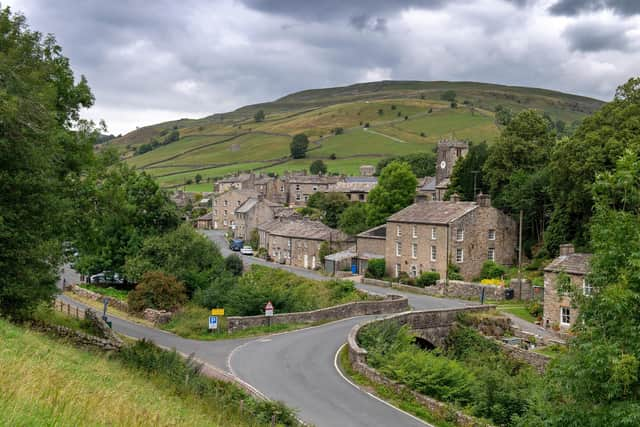Two reports in a week slam government for overlooking 'crisis in the countryside'
Action with Communities in Rural England (ACRE) has released a briefing note which says the combined impact of rising fuel prices, cost of housing and access to services are factors that are making life particularly challenging.
The charity says the impact of the cost of living crisis in rural areas is deprivation that is being overlooked.
Advertisement
Hide AdAdvertisement
Hide AdIt is estimated that 27 per cent of rural households are currently in fuel poverty, many of whom are off the gas grid and have not received the same level of government subsidy as those on dual tariffs.


Housing affordability has also got worse in rural areas since the pandemic. Between 2020 and 2021, it was estimated rental prices in suburban and rural areas jumped by 11 per cent compared to just two per cent in urban areas. Last year, the cheapest properties to buy were 8.8 times the earnings of those on lower incomes, compared with 7.6 times earnings in the city.Access to services is one of the biggest challenges, according to ACRE.
Rural residents often need to travel more frequently and further to access employment and services, and have also been disproportionately affected by rising fuel prices which increased from £1.16 per litre for petrol in 2020 to £1.65 in 2022, and £1.19 to £1.78 for diesel respectively.
The note says that the human consequences of the cost-of-living crisis in rural areas is now being seen. Citizen Advice reports that energy debt is now the most common problem that people are presenting with in rural areas. A recent academic study, supported by a range of organisations including ACRE, found that 91 per cent of frontline workers in rural areas have seen homelessness increase in their area over the past five years. In addition, data published by the Trussell Trust shows that 65 per cent more food parcels were distributed in rural districts in 2022/23 compared with 2020/21.
Advertisement
Hide AdAdvertisement
Hide AdRichard Quallington, ACRE’s Executive Director, said: “Far too often the needs and concerns of rural communities escapes the lens of policy makers. This has certainly been the case over the past couple of years as the cost-of-living crisis has disproportionately ground down on many lower income rural households.


"Not only have sticky plaster initiatives such as the Energy Bills Support Scheme failed to recognise and address the specific circumstances of those living in the countryside, but long-term structural problems such as the lack affordable homes and access to services have gone neglected.“Whilst there is no magic bullet, we hope that at the very least the evidence we have published will trigger a much-needed conversation about what it means to be left behind in rural areas, and what can be done to achieve levelling up in the countryside.”
ACRE set out a number of recommendation such as the introduction of a Local Energy Bill; the re-defining of what is meant by ‘affordable housing’ and more rural community-led affordable housing schemes.
The ACRE document follows the All-Party Parliamentary Group for Rural Business and the Rural Powerhouse, chaired by Julian Strudy MP and Lord Cameron of Dillington, publishing its own report.
Advertisement
Hide AdAdvertisement
Hide Ad‘The Rural Premium’ is based on written and oral evidence from stakeholders across the rural economy and also details how those living and working in rural communities are at a disadvantage in terms of everyday living requirements, housing, employment and energy.
